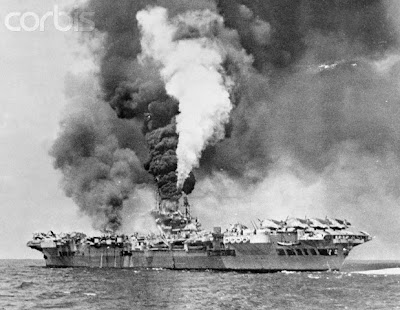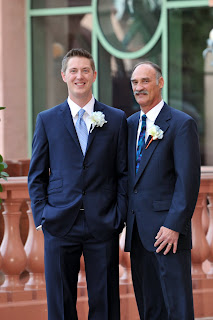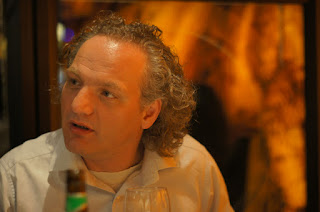The trip also seemed larger-than-life sometimes because I wanted to do a great job at the consulting work that I'm here to do, but 6 weeks is a shorter amount of time than it sounds like when you're building recommendations for the world's fastest growing, soon-to-be-largest market, which operates on some very different social and professional norms that what I've grown to know in The States. All the cases in the world won't entirely prepare you for the world that exists outside of the comfort of the MBA classroom. I'm confident that the work I've done so far to prepare for my upcoming presentation has been focused on the right areas, and that my recommendations to my internal customers will be strong, but sometimes you can't help but to wonder what would happen if you're wrong. The presentation of findings and recommendations only happens once, and everyone in the room will know in that one instant if you're everything you promised them you'd be, or if someone else should have taken your seat on the plane instead. In contrast, B-School is great because you can talk to professors, work with teammates, increase your skills, make mistakes, help yourself by helping others, study just a little bit more, and then do it all over again next semester. But ultimately when you get out there, especially working abroad on a relatively brief consulting project, the luxuries afforded you by going to school full time are now far, far away. B-School means office hours, advice to and from your peers, teamwork that improves the overall quality of your findings, and you can't take any of those things with you're when your packing your bags to leave.
There's more to working abroad that you know about before you leave, yet seldom give much thought to. You can't help but to assume that if it happens, it will probably be to someone else, which is sad for them, but you're pretty sure nothing will happen to you. This morning, I was talking to my wife, and she told me that my Grandfather has become very sick. He's had some problems with his heart in the past year, but it looked like the procedures that he'd undergone had rectified the concerns we had, and that he had gone back to living the life he was accustomed to. As it turns out, the very treatment that was protecting him, and his heart, has, by virtue of a very unlikely side effect, destroyed his lungs, so much so that 15 liters of oxygen a day are barely enough for him right now. I realize that 15 liters is an unfamiliar point of reference for most of you, so let's just say that it's a terrible thing, and that even the biggest tanks of oxygen aren't going to be fixing this particular problem.
My Grandfather, Roger, whom my Dad is named after, is this good-looking 86 year-old man who would typically be able to run circles around any 40 year-old that got in his way.
 My Grandmother, Elaine, whom my aunt is named after, died from cancer at the age of 67 and my grandfather has lived on for another 15 or so years since that time. He's still in the same home where I would sneak cookies from the kitchen, still tending to the same greenhouse I was always amazed by as a kid, still cutting the same grass I never wanted to help out with when I was a selfish teenager. Up through now, my Grandfather has always been a little bit bulletproof to me. I always loved my Grandma because she was sweet and would give me candy every week and was, you know...Grandma. I can still smell the scent of her pumpkin pie during the holidays and picture the mountains of whipped cream I would put on every slice. I was scared of my Grandfather because he seemed stern and gruff, always sitting in his chair watching the news or reading the paper, and swearing about whatever had him riled up at the moment. My parents would always make me give him a kiss when we would leave their house and his facial hair was rough and always hurt my skin so I hated having to do it.
My Grandmother, Elaine, whom my aunt is named after, died from cancer at the age of 67 and my grandfather has lived on for another 15 or so years since that time. He's still in the same home where I would sneak cookies from the kitchen, still tending to the same greenhouse I was always amazed by as a kid, still cutting the same grass I never wanted to help out with when I was a selfish teenager. Up through now, my Grandfather has always been a little bit bulletproof to me. I always loved my Grandma because she was sweet and would give me candy every week and was, you know...Grandma. I can still smell the scent of her pumpkin pie during the holidays and picture the mountains of whipped cream I would put on every slice. I was scared of my Grandfather because he seemed stern and gruff, always sitting in his chair watching the news or reading the paper, and swearing about whatever had him riled up at the moment. My parents would always make me give him a kiss when we would leave their house and his facial hair was rough and always hurt my skin so I hated having to do it. |
| The USS Ticonderoga after the second kamikaze strike while my Grandfather served aboard as a gunner. |
 |
| Dad & I at my wedding in 2009 |
During my time in China, I've made a friendship with a Dutch man named Arnaud. He's a fantastic guy with an amazing family history and a significant story of his own. One night he was telling me that the Netherlands had been so ravaged during World War II, that his homeland was no longer able to support itself, and that the Germans were quickly destroying what little ability they had to survive. Germany had cut off the roads and transportation within the Netherlands, and thus prevented the food, and heating fuel of the country from making it to the population. The Dutch call this time the Hongerwinter; we call it the Dutch Famine of 1944. The exact same time that my Grandfather was trying to prevent Japanese planes from landing on his head, 18,000 Dutch citizens died from malnutrition. Arnaud started to tell me about how American and British soldiers would help to secure flour from Sweden, which the Dutch could then bake for themselves, and how the Allied Forces would airdrop pallets of bread in German-occupied Dutch territories in what was called Operation Manna.
 |
| My Friend Arnaud |
It's part of life when you long for the things that you can't take with you every day. It's hard sometimes to know that you can't always be where you want to be to so that you can witness all the important events in your life. But right now, in this moment, all I can think about is how I actually can bring this kind message, these sweet, heartfelt words of thanks, back to the man who has always been so bulletproof, so much a permanent fixture of our family for 86 years, and yet he may not be there to receive it when I get home.

















